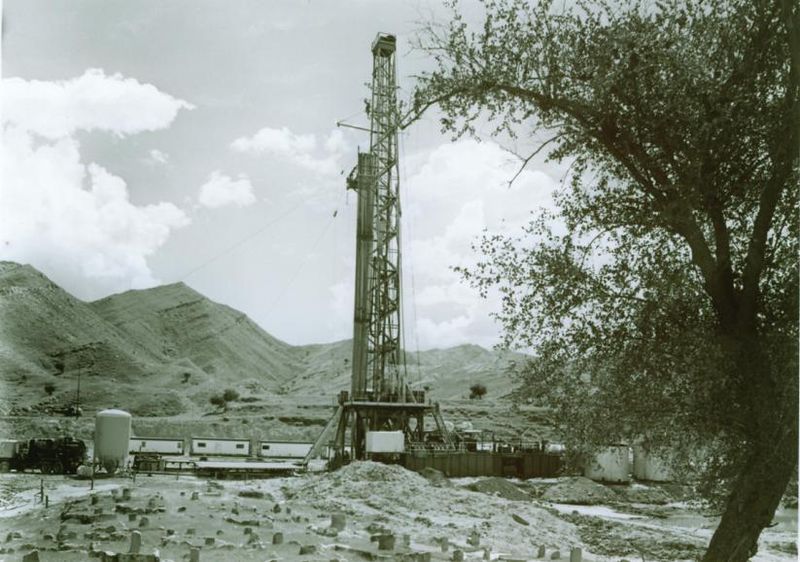
Well number one (Masjed Soleyman Well) was first Oil Well in Iran. The Well Was drilled in 23th of January 1908 by Anglo-Persian Oil Company and It completed in 26th of May in the same year. / Wikimedia Commons
Data from the General Administration of Chinese Customs shows China imported more than 1,78 million barrels of Iranian crude oil last month.
Some perspective: China’s daily consumption is 14,23 million barrels . The fuel bought from Iran is amounts to 3% of one day’s consumption. Assuming China paid around $66 per barrel (which was the low price for crude last month), that’s about $117 million paid to Iran.
What is significant is that China has defied US sanctions prohibiting buying oil from Iran.
Sanctions were unilaterally imposed against Iran by then president Donald Trump. following his 8 May 2018 announcement to cease the United States’ participation in the Joint Comprehensive Plan of Action.
The JCPOA is more commonly known as the Iran Nuclear Deal put in place by Trump’s predecessor, Barack Obama. I considered the JCPOA to be a flagship achievement of the Obama presidency.
Trump drove a truck through that deal. (To his credit, this was one of his election promises, and one should respect the fact that he kept to his word.) Here’s an extract from the US advisory on the new sanctions:
Those who knowingly engage in significant transactions for the purchase, acquisition, sale, transport, or marketing of petroleum or petroleum products from Iran — or knowingly provide significant support to an Iranian person on OFAC’s List of Specially Designated Nationals and Blocked Persons (SDN List), such as the National Iranian Oil Company (NIOC), the National Iranian Tanker Company (NITC), and the Islamic Republic of Iran Shipping Lines (IRISL) — are at serious risk of being targeted by the United States for sanctions, regardless of the location or nationality of those engaging in such activities.
Further, persons providing bunkering services to vessels transporting petroleum or petroleum products from Iran risk being subject to sanctions unless an applicable waiver or exception applies. The United States continues to take strong action to deny the Government of Iran funds derived from the illicit exportation of petroleum or petroleum products from Iran.
The United States is committed to aggressively enforcing our sanctions against the Iranian regime, denying it the financial means to sponsor terrorism and advance its ballistic missile program while permitting humanitarian trade benefitting the Iranian people. Targeting shipments of petroleum and petroleum products from Iran is a critical element of denying the Iranian regime access to financial resources to support its malign activities.
This has been a major inconvenience for many countries, South Africa included. Iranian oil is compatible with our refineries while Angolan and Nigerian crude is not. But we cannot buy from Iran now unless we are prepared to piss off the US. We certainly don’t want to do that because we depend on trade with the US far more than we need Iranian oil.
China, on the other hand, does not need Iranian oil — certainly not 3% of one day’s supply. So why would China deliberately needle the US?
Go back to December 2021 and we find the answer. The US Senate passed by unanimous consent the Uyghur Forced Labor Prevention Act, aimed at countering China over what the US has called genocide against the Uyghur Muslim population in Xinjiang. China is decidedly miffed.
China’s president, Xi Jinping, by publicly disclosing the oil purchase from Iran in defiance of US sanctions, is very pointedly extending a middle finger in the direction of Joe Biden.
